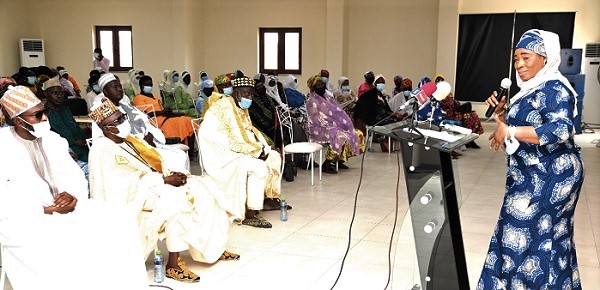
Upper East, West top FGM cases - UNFPA
The Country Representative of the United Nations Fund for Population Activity (UNFPA), Mr Niyi Ojualape, has called on the government and other stakeholders to join forces against the practice of female genital mutilation (FGM).
According to UNFPA estimates, the Upper West Region recorded 32.5 per cent FGM cases on women between 15 and 49 years, while in the Upper East Region, 13.2 per cent of women also went through the practice, making the two regions the highest in FGM cases in 2021.
Advertisement
Globally, Mr Ojualape said, more than 200 million females had undergone FGM, with four million more at the risk of undergoing the practice annually.
He, therefore, appealed to leaders to use their positions to speak up against the practice, which was endangering the lives of many girls.
"We are making an appeal and a clarion call to you all to accelerate and leverage your authority to influence norms that speak against FGM in your communities,” he added.
Event
Mr Ojualape made the call at a forum to commemorate this year’s International Day of Zero Tolerance for FGM at the Ghana National Mosque, Kanda in Accra yesterday.
The forum was on the theme: “Accelerating investment to end female genital mutilation”.
According to him, the practice was a contributory factor to perpetuating inequalities and also hindering the empowerment and development of women and girls.
He added that the UNFPA would invest in the generation of baseline data on FGM prevalence in the two upper regions which recorded the highest number of cases.
“The UNFPA and the United Nations Children’s Fund (UNICEF) have launched a three-year joint programme in the northern and the eastern parts of the country to restore the dignity of girls who had been subjected to FGM. We have also trained leaders and influencers on the negative impact of the practice,” he said.
Effect of FGM
A representative of the Ghana Health Service (GHS), Ms Cindy Appiah, said FGM had serious health effect on victims, as "some bleed to death, others get infected, leading to swellings that never get healed, increased pain during intercourse and childbirth, reduction in sexual satisfaction, among others”.
The Public Relations Officer of the Zongo Community, Chief Baba Issah Imoro, entreated organisations and stakeholders dealing with FGM to engage and empower community elders and leaders more.
He also said FGM was not an Islamic practice, as perceived by many, and urged all to get involved in its eradication from communities.
For her part, the Member of Parliament (MP) for Walewale in the North-East Region, Hajia Lariba Zuweira Abudu, said the Ministry of Gender was not relenting in its efforts at ending the practice.




